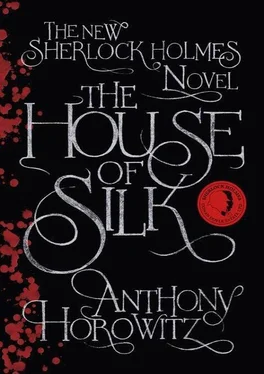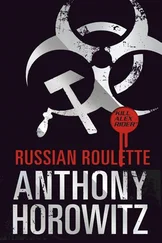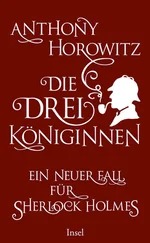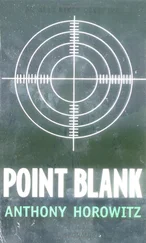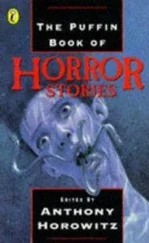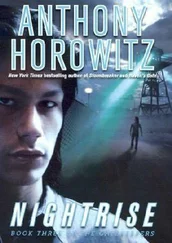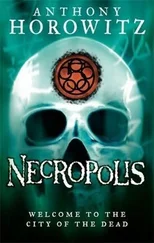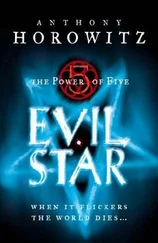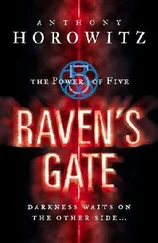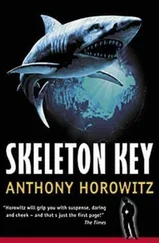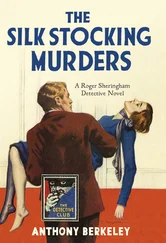Anthony Horowitz - The House of Silk
Здесь есть возможность читать онлайн «Anthony Horowitz - The House of Silk» весь текст электронной книги совершенно бесплатно (целиком полную версию без сокращений). В некоторых случаях можно слушать аудио, скачать через торрент в формате fb2 и присутствует краткое содержание. Город: London, Год выпуска: 2011, ISBN: 2011, Издательство: Orion Books, Жанр: Детектив, на английском языке. Описание произведения, (предисловие) а так же отзывы посетителей доступны на портале библиотеки ЛибКат.
- Название:The House of Silk
- Автор:
- Издательство:Orion Books
- Жанр:
- Год:2011
- Город:London
- ISBN:978-1-4091-3384-1
- Рейтинг книги:3 / 5. Голосов: 1
-
Избранное:Добавить в избранное
- Отзывы:
-
Ваша оценка:
- 60
- 1
- 2
- 3
- 4
- 5
The House of Silk: краткое содержание, описание и аннотация
Предлагаем к чтению аннотацию, описание, краткое содержание или предисловие (зависит от того, что написал сам автор книги «The House of Silk»). Если вы не нашли необходимую информацию о книге — напишите в комментариях, мы постараемся отыскать её.
The House of Silk — читать онлайн бесплатно полную книгу (весь текст) целиком
Ниже представлен текст книги, разбитый по страницам. Система сохранения места последней прочитанной страницы, позволяет с удобством читать онлайн бесплатно книгу «The House of Silk», без необходимости каждый раз заново искать на чём Вы остановились. Поставьте закладку, и сможете в любой момент перейти на страницу, на которой закончили чтение.
Интервал:
Закладка:
I hear it still. As I lay down my pen and take to my bed, I am aware of the bow being drawn across the bridge and the music rises into the night sky. It is far away and barely audible but — there it is! A pizzicato. Then a tremolo. The style is unmistakable. It is Sherlock Holmes who is playing. It must be. I hope with all my heart that he is playing for me…
Anthony Horowitz on Writing The House of Silk : Conception, Inspiration and The Ten Rules.
I’m still quite surprised that I was approached to write The House of Silk (I’m assuming, by the way, that you have read it before you reach this point. Spoilers follow!). Although the bulk of my television work is adult, when it comes to fiction I’m better known for children’s books — in particular the Alex Rider series — and I’m fairly sure that the Doyle estate wasn’t interested in a fast-paced action thriller full of explosions and improbable chases. They’d already had plenty of that with Robert Downey Jnr. At the time, they weren’t even aware that I have long been an admirer of the Sherlock Holmes novels and short stories. I was actually given a set by my father for my seventeenth birthday (I think) and they immediately wove themselves into the fabric of my life. I cannot now read The Dying Detective or The Devil’s Foot (two of my favourites) without somehow regressing into my teens. For me, Jeremy Brett was the finest TV Holmes and watching occasional re-runs on ITV3, I find myself being taken back to my late twenties and can see the house where I lived, even the clothes I was wearing. There are very few characters in fiction who have the power to do this — but Holmes is certainly one of them.
It may well be that Sherlock Holmes is the reason why I have spent so much of my life writing crime fiction of my own and if there is one small boast that I occasionally make, it’s that I have probably written more fictional murders than any other writer. Ever. The crime figures can be quickly totted up.
I helped to create Midsomer Murders from the novels of Caroline Grahame (‘Agatha Christie on acid’) and they certainly have the highest body count on British Television. I wrote the first seven episodes which saw no fewer than nineteen fatalities including Elizabeth Spriggs (poisoned), Anna Massey (pushed out of a window) and Orlando Bloom (stabbed with a pitchfork). In the early days of MM , writers were encouraged to develop a bad habit in that whenever an advertising break approached, someone would be killed simply to make the story more interesting and to encourage the audience to keep watching. It could be argued that in the end this would turn the series into a parody of itself. For my part, I had to give up writing the show when I realised that there was hardly anybody left in Midsomer to murder.
Before MM , I adapted fourteen hours of Agatha Christie’s Poirot , which averaged at least one murder in the short stories, often two or three in the novels. A less successful original series of mine, Crime Traveller , had a detective travelling back in time to prevent murders and invariably feeling (it was a time paradox… if there hadn’t been a murder he would never have travelled back in time so the very fact that he had done so proved that it had to have happened). Eight hours, eight more deaths. Given that they were supposed to be a slice of UK life in the 21st Century, there were a surprising number of murders in the two five-part shows that I developed for ITV: Collision and Injustice .
And then there’s Foyle’s War , which has now run for ten years on ITV with Michael Kitchen superb as a reluctant detective investigating crimes during the Second World War. Perhaps this was the programme that brought me to the attention of the Doyle estate. More serious and low-key than Midsomer Murders , it was set in the past, very carefully researched and perhaps more in keeping with the book they had in mind. I wrote twentyone two hour episodes and although we did our best to keep the body count down (my favourite episode, The French Drop , has no murder at all) the deaths still added up.
And that’s not counting my children’s books. The Alex Rider world is necessarily a violent one. I have produced over thirty horror stories. And then there are the less well known but surprisingly blood-splattered detective stories featuring the Diamond brothers. I Know What You Did Last Wednesday , contains seven violent deaths in just seventy-eight pages.
I’m often asked why readers have such a keen interest in murder. The short answer is that actually I think we don’t — but in fiction, whether it’s television or books — murder is a simple, very immediate way of focusing attention on a character. We may have no particular interest in a man who makes pizzas but the moment his wife is found with her head in the pizza oven, we’re forced to ask questions about him, to look behind their relationship, to search for the truth. In detective drama, the viewer and the detective have a very similar role. And what is it about the British that makes us so pre-eminent in this field? Well, I think the fictitious county of Midsomer provides part of the answer. As a race we’re very secretive. By and large we don’t display our emotions in the same way as, say, the Americans. We live behind net curtains. This is an atmosphere very conducive to murder and it reminds me that when I put together a document to explain the ethos of Midsomer Murders — this was before the series had even been commissioned — I put at the head of it a famous quotation from the Sherlock Holmes story, The Adventure of the Copper Beeches : ‘the lowest and vilest alleys in London do not present a more dreadful record of sin than does the smiling and beautiful countryside.’
How do I set about creating a murder mystery? This is another question that often comes up at literary festivals. For me, all murder stories boil down to a very simple formula: A+B=C. A is one person. B is another person. C is the reason why A wants to murder B. The genius of Agatha Christie was that she managed to find so many variations on this basic formula. The narrator did it. The detective did it. The little boy did it. They all did it. And yet, the strange thing is that when you come to think them up, there are very, very few reasons why anybody actually wants to murder anybody. In fact I can only really think of three: money, fear and passion… which may be sexual passion, revenge or whatever.
I see a murder story as a series of concentric circles, almost like a dart board. At the very centre is that equation. It is where I start because it is both the beginning and the end; the springboard and the solution to the crime. But then I have to add the next levels. The other suspects. More stories which, though often irrelevant, nonetheless link up with the bull’s eye. In Foyle’s War , I would add whole stories which had nothing whatsoever to do with the crime but which in many ways interested me much more: anti-Semitism in Britain, the birth of plastic surgery, funk holes, spies, etc These would all be layered in. Every book has to have a shape. A murder story is circular.
If there was a model for Foyle or, for that matter, Midsomer Murders , it was probably closer to Agatha Christie or Dorothy L. Sayers than Doyle. The crime is committed. The detective is introduced and pursues a scattering of clues, meeting people who all add a new perspective to the original crime. A second murder takes place and seems to send the story in a completely new direction. At last the suspects gather in one place. The detective has his moment in the spotlight — and if he’s Poirot he accuses everyone in the room before he finally settles on the guilty party who is, of course, the last person you expected. The guilty party claims innocence. Cue the flashback. Poirot is proved right. Everyone goes home.
Читать дальшеИнтервал:
Закладка:
Похожие книги на «The House of Silk»
Представляем Вашему вниманию похожие книги на «The House of Silk» списком для выбора. Мы отобрали схожую по названию и смыслу литературу в надежде предоставить читателям больше вариантов отыскать новые, интересные, ещё непрочитанные произведения.
Обсуждение, отзывы о книге «The House of Silk» и просто собственные мнения читателей. Оставьте ваши комментарии, напишите, что Вы думаете о произведении, его смысле или главных героях. Укажите что конкретно понравилось, а что нет, и почему Вы так считаете.
